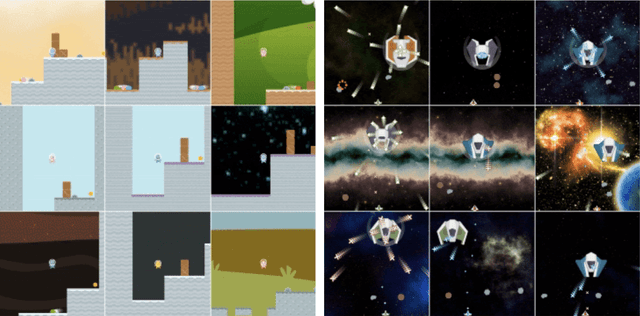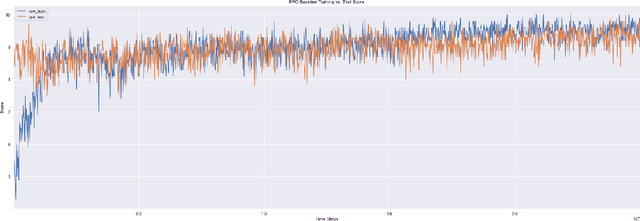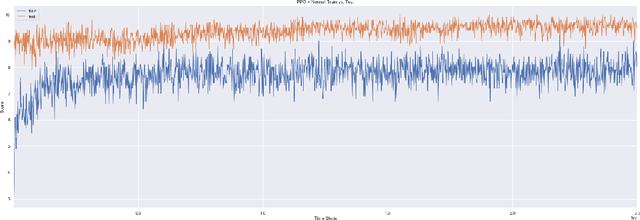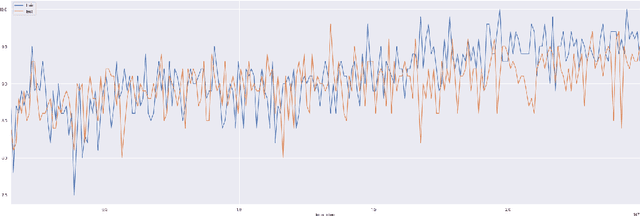Reinforcement Learning Generalization with Surprise Minimization
Paper and Code
Apr 26, 2020



Generalization remains a challenging problem for reinforcement learning algorithms, which are often trained and tested on the same set of environments. When test environments are perturbed but the task is semantically the same, agents can still fail to perform accurately. Particularly when they are trained on high-dimensional state spaces, such as images. We evaluate an surprise minimizing agent on a generalization benchmark to show an additional reward learned from a density model can help agents acquire robust skills on unseen procedurally generated diverse environments.
 Add to Chrome
Add to Chrome Add to Firefox
Add to Firefox Add to Edge
Add to Edge